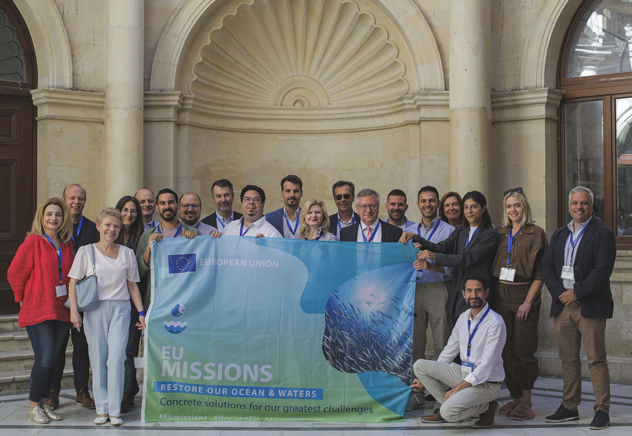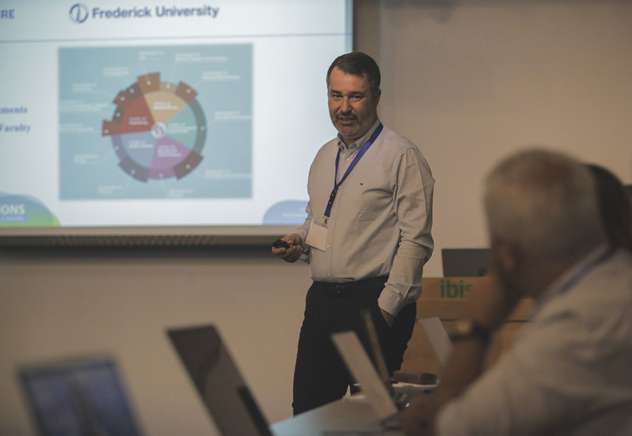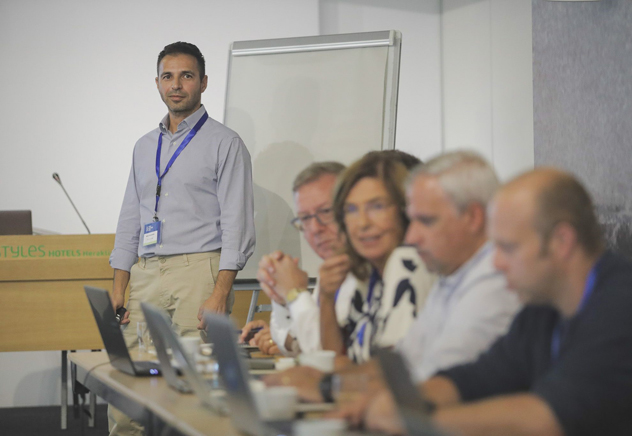
TASC-RestoreMed project supports communities in the Mediterranean to protect the marine ecosystem

Frederick University is participating in TASC-RestoreMed, a HORIZON program funded by the European Commission, aimed at implementing actions to achieve the EU Mission “Restore our Oceans and Waters.”
This is one of the five EU Missions targeting solutions to the world’s significant challenges by 2030. The “Restore our Oceans and Waters” Mission aims to protect and restore oceans and waters through research and innovation, citizen engagement, and investments in the Blue Economy. The Mission treats oceans and waters as a unified whole and plays a key role in achieving climate neutrality and restoring ecosystems.
The TASC-RestoreMed project, in which Frederick University collaborates with nine other partners across Europe, aims to provide technical and other support to communities in the Mediterranean basin. This support will enable them to engage in protecting and restoring the marine ecosystem, reducing marine pollution, and promoting a circular, blue economy with zero carbon footprint. The project aspires to create real change by combining environmental sustainability with social justice.
“Through this project, we will provide support to at least five large-scale and 20 small-scale projects within the EU. Our goal is for coastal communities in Cyprus to also benefit from this initiative,” says Dr. Michalis Menikou, Associate Professor and Head of the Department of Mechanical Engineering at Frederick University, and a member of the project team. The team also includes Dr. Marios Charalambides, a faculty member at Frederick University. “We have the expertise to offer consulting services related to feasibility studies, business plans for sustainable community development, and studies on environmental and socio-economic impacts. The involvement of everyone—from ordinary citizens to governments—is essential, so that the solutions proposed genuinely reflect the communities themselves and gain broad acceptance. Importantly, we will stand by them until the end, providing support for the implementation of their actions with the ultimate goal of protecting our seas,” Dr. Menoikou adds.
The TASC-RestoreMed research project will last four years with a budget of €12.5 million, expected to be allocated to five large community projects and 20 small-scale community projects. The ambitious goals include creating marine protected areas, reducing marine litter by 50%, and reducing microplastics, which will help limit nutrient loss in the marine ecosystem.
Frederick University will leverage its expertise in developing case studies and analyzing their impacts regarding community programs. These studies will ensure that the proposed solutions of each project are not only economically viable but also aligned with the market, regulations, legislation, and broader policies of the EU and the Mediterranean region. The University will collaborate with partners to examine the additional impacts of these solutions on the environment, climate, health, and biodiversity.
The project consortium includes the Hellenic Centre for Marine Research (HCMR, Greece), the National Technical University of Athens (Greece), the Interdisciplinary Centre CIIMAR (Portugal), Impact Hub Labs (Greece), the Asociación Centro Tecnológico Naval y del Mar CTN (Spain), the University of Maribor (Slovenia), the VLIZ Institute (Belgium), the F6S Network (Ireland), and InforData Sistemi Srl-INFOR (Italy).



